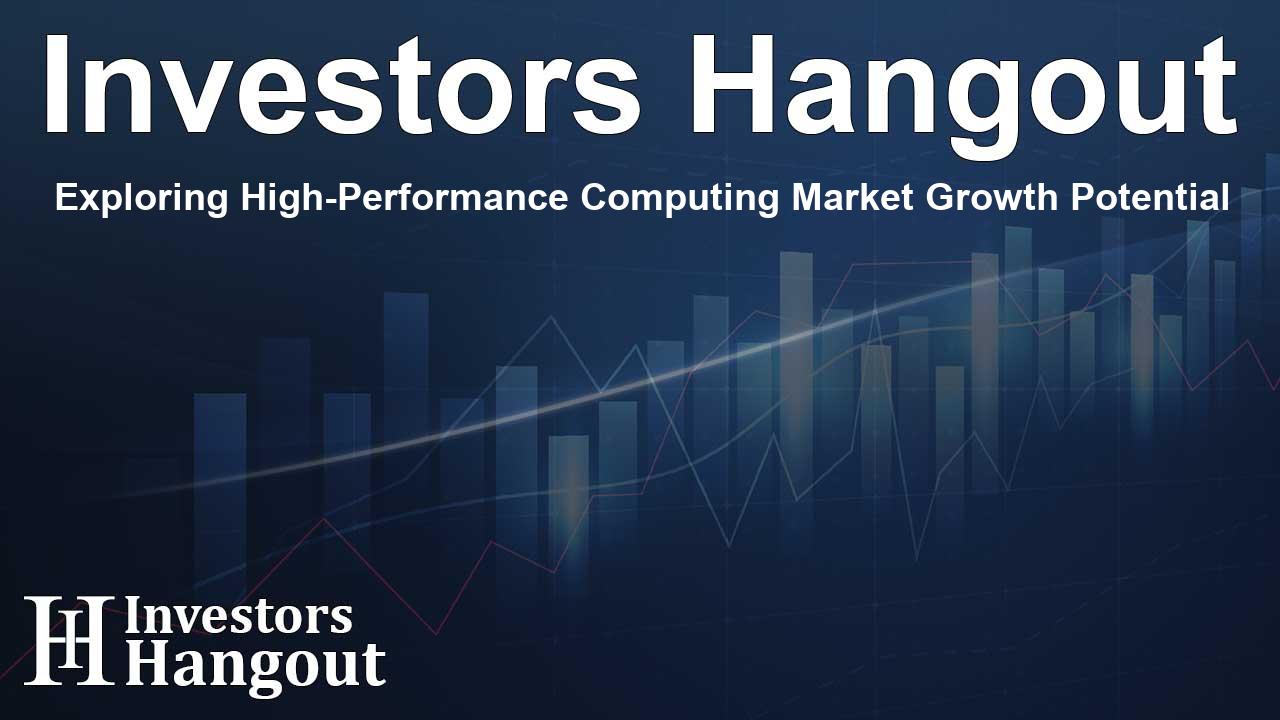Exploring High-Performance Computing Market Growth Potential

High-Performance Computing Market Insights
The high-performance computing market is experiencing significant growth, driven by the increasing demand for advanced virtualization and the continuous evolution of the IT industry. The rise in hybrid high-performance computing (HPC) solutions is particularly influential. These systems allow for the fast processing of large volumes of data, making them essential in various sectors such as academia, defense, energy, and governmental utilities. The government sector, utilizing HPC to tackle complex scientific challenges, is a key driver of this market's expansion.
Factors Fueling Growth in HPC Adoption
Multiple factors contribute to the rapid adoption of high-performance computing systems. There is a notable trend towards cloud-based HPC solutions, enhancing accessibility for organizations looking to maximize data processing capabilities. This transition is not only beneficial for academic and governmental institutions but also plays a critical role in industries requiring complicated computational tasks, including finance and healthcare.
Advancements in Hardware Technology
In terms of components, hardware is a significant contributor to the high-performance computing market's expansion. Advancements in technology have led to improvements in processors, memory capabilities, and interconnects, enhancing the overall efficiency of HPC systems. Specialized hardware components such as GPUs and FPGAs are increasingly essential, allowing these systems to execute complex calculations and manage large data sets efficiently. Continuous innovation in hardware is vital for the sustained growth of the HPC market.
HPC’s Role in Financial Services
The banking and financial services industry has also recognized the potential of high-performance computing. As cyber security threats have become more pervasive, HPC systems offer the necessary computational power for real-time data processing and complex mathematical calculations. This capability allows financial institutions to mitigate risks associated with digital transactions and improves fraud detection methods. Consequently, many organizations within this sector are actively investing in HPC systems.
Regional Market Dynamics
Geographically, North America leads the high-performance computing market, benefiting from the presence of major players in the industry, such as IBM and Intel. The accelerated adoption of HPC in the region is driven by a robust government focus on research and development, alongside a culture of early technology adoption. The demand for HPC systems continues to rise due to governmental and private organizations seeking to enhance their computational capabilities.
Challenges Facing the HPC Market
Despite the remarkable growth, the high-performance computing market faces various challenges. Security concerns regarding data integrity are at the forefront, particularly for smaller enterprises that may lack the necessary budget to invest in robust solutions. Additionally, inadequate digital infrastructure poses a significant barrier, hindering the potential benefits of HPC technologies.
Future Projections for the HPC Market
Market forecasts indicate that the high-performance computing industry is poised for substantial growth, expected to expand from a revenue of USD 1.90 billion to USD 3.87 billion by the end of the projected period, with a compound annual growth rate (CAGR) of 10.7%. This growth underscores the continuing importance of HPC across various sectors.
Conclusion
The high-performance computing market is positioned for significant growth, fueled by advancements in technology and the increasing need for advanced computational capabilities across several industries. With ongoing investments and innovations, the future of HPC appears bright as it continues to facilitate complex problem-solving and streamline operations worldwide.
Frequently Asked Questions
What is driving the growth of the high-performance computing market?
The growth is primarily driven by the increasing demand for virtualization, the expansion of the IT industry, and the adoption of hybrid HPC solutions.
Which industries are benefiting from high-performance computing?
Industries such as academia, defense, finance, energy, and governmental agencies are significantly benefiting from high-performance computing technology.
What role does hardware play in the HPC market?
Hardware advancements, specifically in processors, memory, and specialized systems like GPUs, are critical for enhancing the performance and efficiency of HPC systems.
How is HPC impacting the financial services sector?
HPC provides financial institutions with the real-time processing power needed to enhance security and efficiency in handling complex transactions and mitigating cyber threats.
What are the future growth expectations for the HPC market?
The market is expected to grow significantly, potentially reaching USD 3.87 billion by the projected period, with a CAGR of 10.7%, indicating a strong future for high-performance computing.
About Investors Hangout
Investors Hangout is a leading online stock forum for financial discussion and learning, offering a wide range of free tools and resources. It draws in traders of all levels, who exchange market knowledge, investigate trading tactics, and keep an eye on industry developments in real time. Featuring financial articles, stock message boards, quotes, charts, company profiles, and live news updates. Through cooperative learning and a wealth of informational resources, it helps users from novices creating their first portfolios to experts honing their techniques. Join Investors Hangout today: https://investorshangout.com/
Disclaimer: The content of this article is solely for general informational purposes only; it does not represent legal, financial, or investment advice. Investors Hangout does not offer financial advice; the author is not a licensed financial advisor. Consult a qualified advisor before making any financial or investment decisions based on this article. The author's interpretation of publicly available data shapes the opinions presented here; as a result, they should not be taken as advice to purchase, sell, or hold any securities mentioned or any other investments. The author does not guarantee the accuracy, completeness, or timeliness of any material, providing it "as is." Information and market conditions may change; past performance is not indicative of future outcomes. If any of the material offered here is inaccurate, please contact us for corrections.